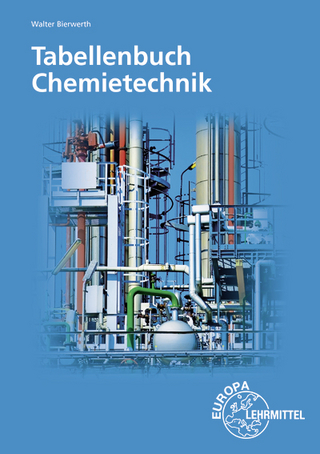
A New Approach to HAZOP of Complex Chemical Processes
Elsevier - Health Sciences Division (Verlag)
978-0-323-90562-6 (ISBN)
Fabienne-Fariba Salimi has over 30 years of experience as a chemical process engineer. She has experience in Management and Chemical Process Safety engineering in oil and gas industries both offshore and onshore installations. She has particular expertise is dynamic simulation of chemical processes and accident consequence modelling in quantitative risk analysis. Her main qualifications were obtained in Iran and France and she is member of the Institute of Chemical Engineers, American Institute of Chemical Engineers, International Society of Automation, and Association of the French System Engineers. She is the co-developer of ADEPP and has been the Project Manager of ADEPP Academy since 1994. Ali Akbar Safavi received his B.S. degree in Electrical Engineering from Shahid Chamran University, Iran, in 1987, and his M.Sc. degree in Control Engineering from the University of NSW, Australia, in 1992. His Ph.D. in Process Systems Engineering was completed at Sydney University in 1995. In 1996, he was a Postdoctoral fellow in Sydney University. He joined Shiraz University in 1997. He is currently a Professor in the School of Electrical and Computer Engineering at Shiraz University in Iran. He has been principal investigator of several industrial projects and several international project. He is author of several books and more than 250 papers. For many years, has been the Directing Board Member of various Scientific Associations including ISICE, YADA, etc. His research interests are model predictive control, wavelets, neural networks, system identification, networked based control, and information technology, IIoT, and Industry 4.0. and Industry 5.0. See https://safavi.home.shirazu.ac.ir/, http://linkedin.com/in/ali-akbar-safavi-90451039. Leonhard Urbas studied information technology in mechanical engineering in Technische Universität Berlin (1988-1993). He was research associate at the institute of Process and Plant Engineering in TU Berlin from 1993 to 1997. In 1998, he had topic and project responsibility in the field of automation technology at degussa AG, Hanau/Köln/Dortmund from for two years. From 2000 to 2006, he was the leader of junior research group "Bedienermodellierung in dynamischen Mensch-Maschine-Systemen" in TU Berlin. He is currently the head of the Chair of Process Control Systems and the Process Systems Engineering Group at Technische Universität Dresden, Dresden, Germany, and a professor. His research interests include engineering of distributed safety-critical systems, in particular function integration, model-driven engineering and modularization; information models of the process industry, process information and management systems and middleware in automation engineering; usability of multimodal and mobile interfaces in automation systems; Analysis, design and evaluation of alerting and support systems; methods of user modeling for prospective design of human-technology interaction. See: https://tu-dresden.de/ing/elektrotechnik/ifa/plt/die-professur/mitarbeiter/leon-urbas Frederic Salimi has over 35 years of experience in safety engineering and petrochemical design in oil and gas industries both onshore and offshore. He has experience in HSE management and risk based design for EPC projects. His expertise includes Safety & Environment code and standard compliance, pipeline risk assessment, critical system identification, and Qualitative and Quantitative Risk Assessment. His main qualifications in Physics and RAMS were obtained in Iran and France. He is a member of the American Institute of Chemical Engineers. He is the co-author of ADEPP and co-founder of the ADEPP Academy.
Preface 1. Introduction
2. Hazard Identification Techniques
3. HAZOP Techniques
4. Automated HAZOP
5. Case Study 2: HIPPS Studies
6. How Complexity applies to HAZOP
7. Multivariable Process Monitoring for HAZOP
8. Artificial Intelligence for HAZOP 4.0
9. Case Study 1: HAZOP of Complex Styrene Polymerization Plant
10. Digital Twins for PSM 4.0
| Erscheinungsdatum | 16.05.2023 |
|---|---|
| Verlagsort | Philadelphia |
| Sprache | englisch |
| Maße | 152 x 229 mm |
| Gewicht | 520 g |
| Themenwelt | Naturwissenschaften ► Chemie ► Technische Chemie |
| Technik | |
| ISBN-10 | 0-323-90562-5 / 0323905625 |
| ISBN-13 | 978-0-323-90562-6 / 9780323905626 |
| Zustand | Neuware |
| Informationen gemäß Produktsicherheitsverordnung (GPSR) | |
| Haben Sie eine Frage zum Produkt? |
aus dem Bereich


